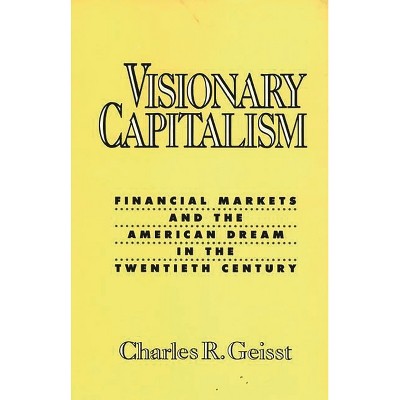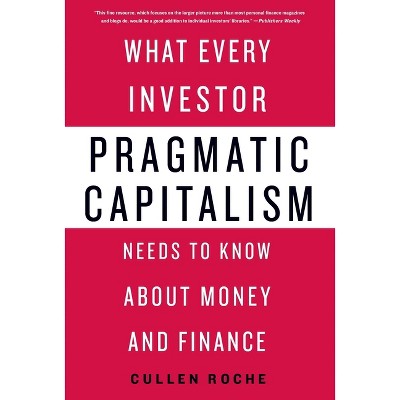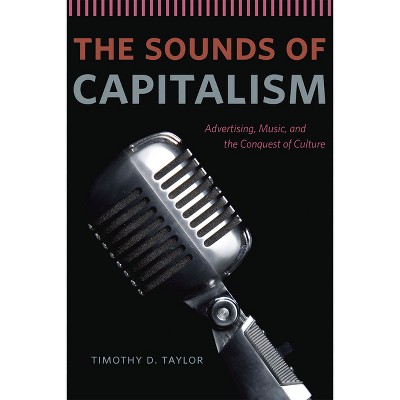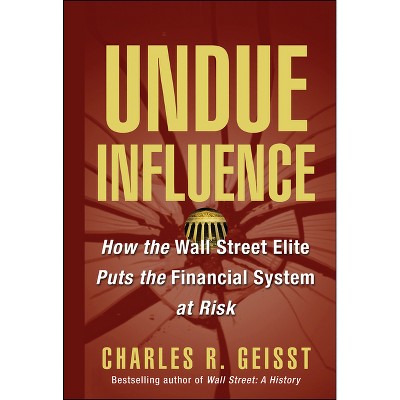Sponsored

Entrepot Capitalism - by Charles R Geisst (Hardcover)
In Stock
Sponsored
About this item
Highlights
- This is the first history on the subject of foreign investment in the United States since 1920.
- About the Author: CHARLES R. GEISST is Associate Professor of Finance at Manhattan College in New York City.
- 184 Pages
- Business + Money Management, Investments & Securities
Description
About the Book
This is the first history on the subject of foreign investment in the United States since 1920. It shows how the United States changed from a debtor nation to a supplier of capital to the rest of the world, and then details the structural shifts to this creditor position after the breakdown of the Bretton Woods system in 1972. Geisst demonstrates that the United States has always been a magnet for foreign portfolio and direct investment. Traditionally, this has come from northern European or Canadian sources, but in the 1970s the Japanese became a major force. Currently, both types of investment in the United States are at historically high levels, but Geisst asserts that this foreign interest exerts a positive rather than a negative impact on the economic climate.
This study is a counterpart to the author's earlier examination of domestic investment in the United States, Visionary Capitalism: Financial Markets and the American Dream in the Twentieth Century. It will be of interest to scholars and professionals in finance and investments, business history, and American history.
Book Synopsis
This is the first history on the subject of foreign investment in the United States since 1920. It shows how the United States changed from a debtor nation to a supplier of capital to the rest of the world, and then details the structural shifts to this creditor position after the breakdown of the Bretton Woods system in 1972. Geisst demonstrates that the United States has always been a magnet for foreign portfolio and direct investment. Traditionally, this has come from northern European or Canadian sources, but in the 1970s the Japanese became a major force. Currently, both types of investment in the United States are at historically high levels, but Geisst asserts that this foreign interest exerts a positive rather than a negative impact on the economic climate.
This study is a counterpart to the author's earlier examination of domestic investment in the United States, Visionary Capitalism: Financial Markets and the American Dream in the Twentieth Century. It will be of interest to scholars and professionals in finance and investments, business history, and American history.Review Quotes
?As an informative analysis of the rise of foreign investment in the United States, the study contributes to an understanding of contemporary, and most likely future, American affairs.?-American Historical Review
?The relative value and impact of direct and portfolio foreign investment in the US since the 1920s is a topic that deserves more attention and understanding. The fact that international capital has and will likely continue to play an important role in the US economy is largely underappreciated. Even the sources of capital, traditionally British, Canadian, and Dutch rather than more recent and sensationalized Japanese involvement, are misunderstood. This study, written as the international companion to the author's 1990 work (Visionary Capitalism: Financial Markets and the American Dream in the Twentieth Century, CH, Jun '91) on domestic financial markets, provides readers with much information and insight into the emergence and growth of the US as a major player and market center of international finance. Geisst (finance, Manhattan College) adeptly describes how even throughout periods of boom and crash, war, and profound structural changes in the international monetary system, the continuing evolution of direct and portfolio foreign investments has contributed to the American economy. Recommended for undergraduates, graduate students, and faculty.?-Choice
"As an informative analysis of the rise of foreign investment in the United States, the study contributes to an understanding of contemporary, and most likely future, American affairs."-American Historical Review
"The relative value and impact of direct and portfolio foreign investment in the US since the 1920s is a topic that deserves more attention and understanding. The fact that international capital has and will likely continue to play an important role in the US economy is largely underappreciated. Even the sources of capital, traditionally British, Canadian, and Dutch rather than more recent and sensationalized Japanese involvement, are misunderstood. This study, written as the international companion to the author's 1990 work (Visionary Capitalism: Financial Markets and the American Dream in the Twentieth Century, CH, Jun '91) on domestic financial markets, provides readers with much information and insight into the emergence and growth of the US as a major player and market center of international finance. Geisst (finance, Manhattan College) adeptly describes how even throughout periods of boom and crash, war, and profound structural changes in the international monetary system, the continuing evolution of direct and portfolio foreign investments has contributed to the American economy. Recommended for undergraduates, graduate students, and faculty."-Choice
About the Author
CHARLES R. GEISST is Associate Professor of Finance at Manhattan College in New York City. He has worked as an investment banker in London and is the author of several books on finance and politics, including A Guide to Financial Markets, A Guide to Financial Institutions, Financial Futures and Markets, and Visionary Capitalism: Financial Markets and the American Dream in the Twentieth Century (Praeger, 1990).










